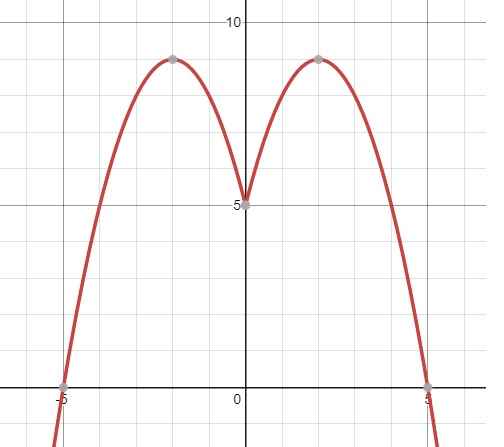\(0,\left(54\right)=\)
\(7,\left(2\right)=\)
Đổi ra phân số nhée
Hãy nhập câu hỏi của bạn vào đây, nếu là tài khoản VIP, bạn sẽ được ưu tiên trả lời.


`#3107.101107`
`-3^2 + {-54 \div [-2^8 + 7] * (-2)^2}`
`= -9 + [-54 \div (-256 + 7) * 4]`
`= -9 + [-54 \div (-249) * 4]`
`= -9 + (18/83 * 4)`
`= -9 + 72/83`
`= -675/83`
______
`31 * (-18) + 31 * (-81) - 31`
`= 31 * (-18 - 81 - 1)`
`= 31 * (-100)`
`= -3100`
___
`(-12) * 47 + (-12) * 52 + (-12)`
`= (-12) * (47 + 52 + 1)`
`= (-12) * 100`
`= -1200`
___
`13 * (23 + 22) - 3 * (17 + 28)`
`= 13 * 45 - 3 * 45`
`= 45 * (13 - 3)`
`= 45 * 10`
`= 450`
____
`-48 + 48 * (-78) + 48 * (-21)`
`= 48 * (-1 - 78 - 21)`
`= 48 * (-100)`
`= -4800`

d) \(PT\Leftrightarrow x\left(2x-7\right)-4\left(x-7\right)=0\)
\(\Leftrightarrow\left(2x-7\right)\left(x-4\right)=0\)
\(\Leftrightarrow\left[{}\begin{matrix}2x-7=0\\x-4=0\end{matrix}\right.\)
\(\Leftrightarrow\left[{}\begin{matrix}x=\dfrac{7}{2}\\x=4\end{matrix}\right.\)
Vậy: \(S=\left\{\dfrac{7}{2};4\right\}\)
e) \(PT\Leftrightarrow\left(2x-5-x-2\right)\left(2x-5+x+2\right)=0\)
\(\Leftrightarrow\left(x-7\right)\left(3x-3\right)=0\)
\(\Leftrightarrow\left[{}\begin{matrix}x-7=0\\3x-3=0\end{matrix}\right.\)
\(\Leftrightarrow\left[{}\begin{matrix}x=7\\x=1\end{matrix}\right.\)
Vậy: \(S=\left\{7;1\right\}\)
f) \(PT\Leftrightarrow x\left(x-1\right)-3\left(x-1\right)=0\)
\(\Leftrightarrow\left(x-1\right)\left(x-3\right)=0\)
\(\Leftrightarrow\left[{}\begin{matrix}x-1=0\\x-3=0\end{matrix}\right.\)
\(\Leftrightarrow\left[{}\begin{matrix}x=1\\x=3\end{matrix}\right.\)
Vậy: \(S=\left\{1;3\right\}\)

\(m=0\) là okee rồi nè
còn \(x_1=x_2\) thì như sau :
\(\Leftrightarrow x_1-x_2=0\)
\(\Leftrightarrow\left(x_1-x_2\right)^2=0^2\)
\(\Leftrightarrow\left(x_1+x_2\right)^2-4x_1x_2=0\)
Tới đây rồi áp dụng cái Vi-ét vào là được m còn lại nhe.

-1/7S=(-1/7)^1+(-1/7)^2+(-1/7)^3+...........+(-1/7)^2008
(-1/7)S-S=[(-1/7)^1+(-1/7)^2+........+(-1/7)^2008]-[(-1/7)^0+(-1/7)^1+.....+(-1/7)^2007]
S(-1/7-1)=(-1/7)^2008-(-1/7)^0
(-8/7)S=(-1/7)^2008-1
S=[(-1/7)^2008-1]:(-8/7)

Do không biết đánh ngôn ngữ web nên mình chỉ dẫn thôi nhé
a) Chuyển 10 sang vế trái thành - 10. Tách -10 ra thành các số -1 : -2 : - 3; -4. Nhóm lần lượt các phân thức đã cho ở đề bài với các số trên. Quy đồng mẫu thức thì các tử thức đều có dạng x - 300. Đặt nhân tử chung là x - 300. Phần còn lại là là một tổng các phân số khác 0. Đến đây bạn tự giải tiếp nhé
b) Phần này quá dễ rồi không phải hướng dẫn nữa
c) Đặt nhân tử chung ra ngoài là (x - 7)^(x+ 1). Khi đó một tích bằng không khi các nhân tử bằng 0. Quá dễ.

Đặt 8x^2=t => t>=0
\(t^2-9-\left(t-1\right)=54\Leftrightarrow t^2-t+1-9=54\)
\(t^2-t+\frac{1}{4}=54+8+\frac{1}{4}=\frac{249}{4}\) lẻ thế nhỉ
\(\left(t-\frac{1}{2}\right)^2=\frac{249}{4}\Rightarrow\left[\begin{matrix}t=\frac{1-\sqrt{249}}{2}< 0\left(loai\right)\\t=\frac{1+\sqrt{249}}{2}\end{matrix}\right.\)
\(\left\{\begin{matrix}x< 0\\8x^2=\frac{1+\sqrt{249}}{2}\end{matrix}\right.\Rightarrow x=\frac{-\sqrt{1+\sqrt{249}}}{16}\)

\(a,2x\left(x-3\right)+5\left(x-3\right)=0\)
\(\Leftrightarrow\left(2x+5\right)\left(x-3\right)=0\)
\(\Leftrightarrow\orbr{\begin{cases}2x+5=0\\x-3=0\end{cases}}\Leftrightarrow\orbr{\begin{cases}2x=-5\\x=3\end{cases}}\Leftrightarrow\orbr{\begin{cases}x=-\frac{5}{2}\\x=3\end{cases}}\)
Vậy .........
\(b,\left(x^2-4\right)+\left(x-2\right)\left(3-2x=0\right)\)
\(\Leftrightarrow x^2-4-2x^2+7x-6=0\)
\(\Leftrightarrow-x^2+7x-10=0\)
\(\Leftrightarrow-\left(x-5\right)\left(x-2\right)=0\)
\(\Leftrightarrow\orbr{\begin{cases}x=5\\x=2\end{cases}}\)
Vậy ..................
\(c,x^3-3x^2+3x-1=0\)
\(\Leftrightarrow\left(x-1\right)^3=0\)
\(\Leftrightarrow x=1\)
\(d,x\left(2x-7\right)-4x+14=0\)
\(\Leftrightarrow2x^2-7x-4x+14=0\)
\(\Leftrightarrow2x^2-11x+14=0\)
\(\Leftrightarrow\left(2x-7\right)\left(x-2\right)=0\)
\(\Leftrightarrow\orbr{\begin{cases}x=\frac{7}{2}\\x=2\end{cases}}\)
Vậy ............
\(e,\left(2x-5\right)^2-\left(x+2\right)^2=0\)
\(\Leftrightarrow4x^2-20x+25-x^2-4x-4=0\)
\(\Leftrightarrow3x^2-24x+21=0\)
\(\Leftrightarrow3\left(x-7\right)\left(x-1\right)=0\)
\(\Leftrightarrow\orbr{\begin{cases}x-7=0\\x-1=0\end{cases}}\Leftrightarrow\orbr{\begin{cases}x=7\\x=1\end{cases}}\)
Vậy .....................
\(f,x^2-x-\left(3x-3\right)=0\)
\(\Leftrightarrow x^2-x-3x+3=0\)
\(\Leftrightarrow x^2-4x+3=0\)
\(\Leftrightarrow\left(x-3\right)\left(x-1\right)=0\)
\(\Leftrightarrow\orbr{\begin{cases}x-3=0\\x-1=0\end{cases}}\Leftrightarrow\orbr{\begin{cases}x=3\\x=1\end{cases}}\)
Vậy ..............

Từ điều kiện đề bài \(\Rightarrow\left\{{}\begin{matrix}a+b+c=8\\-\dfrac{b}{2a}=2\\\dfrac{4ac-b^2}{4a}=9\end{matrix}\right.\Rightarrow f\left(x\right)=-x^2+4x+5\)
a. Không tồn tại m để \(3\left|f\left(x\right)\right|+m-5=0\) có 3 nghiệm phân biệt (nếu pt đã cho có 3 nghiệm thì 1 nghiệm trong đó luôn là nghiệm kép). Có 3 nghiệm thì được (khi đó \(\dfrac{5-m}{3}=9\Rightarrow m\))
b. \(2f\left(\left|x\right|\right)-7+5m=0\Leftrightarrow f\left(\left|x\right|\right)=\dfrac{-5m+7}{2}\) (1)
Đồ thì hàm \(y=f\left(\left|x\right|\right)\) (tạo ra bằng cách bỏ phần bên trái trục Oy và lấy đối xứng phần bên phải của đồ thị \(y=f\left(x\right)\) qua):

Từ đồ thị ta thấy (1) có 4 nghiệm pb khi:
\(5< \dfrac{-5m+7}{2}< 9\) \(\Rightarrow-\dfrac{11}{5}< m< -\dfrac{3}{5}\)
0,(54)=54/99=18/33
7,(2)=65/9